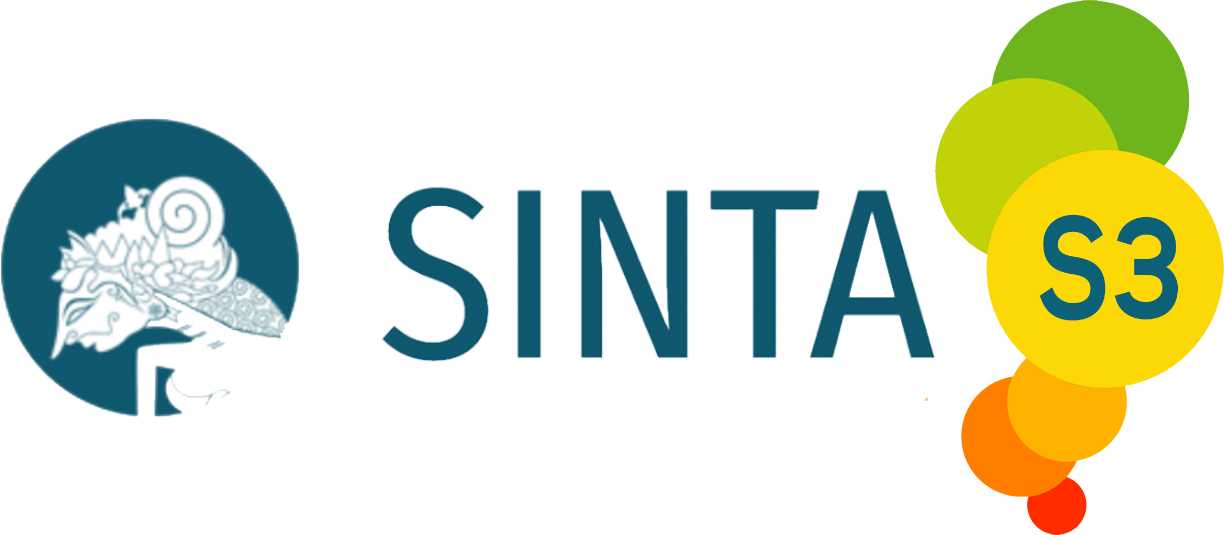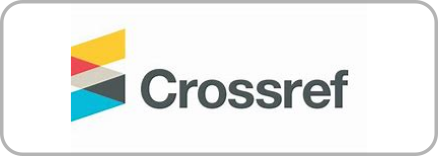Reimagining Leadership: A Hamka’s Perspective on Women’s Role in Power
DOI:
https://doi.org/10.12928/taqaddumi.v4i1.12264Keywords:
Leadership, Women, Hamka, Islam, GenderAbstract
This research aims to delve into the perspectives of Haji Abdul Malik Karim Amrullah (Hamka) concerning the role of women in Islamic leadership. Through a qualitative analysis of the Tafsir al-Azhar, this study reveals that Hamka emphasised the significance of justice, integrity, and consultation as the foundations of leadership, regardless of gender. By analysing various verses, interpretations, and written works on his thoughts, this research identifies several inclusive leadership principles within Hamka's thinking, such as the principle of prioritising the collective good over individual interests. These findings suggest that Hamka opened up opportunities for women to play a more active role in leadership, challenging patriarchal norms that restrict women's potential. This research is anticipated to contribute to the development of a more inclusive framework for Islamic leadership and to foster efforts to empower women in various fields, including politics and religion.
References
Abū Ḥusayn, Muslim. Ṣaḥiḥ Muslim. Riyadh: Bayt al-Afkār al-Dawliyyah, 1993.
Ali, Abdullah Yusuf. The Holy Qur’an. Wordsworth Editions, 2000.
Amir, Ahmad Nabil, and Tasnim Abdul Rahman. “Hamka and the Rise of Kaum Muda (the Modernist) in Indonesia.” Jurnal Muhammadiyah Studies 9, no. 1 (December 7, 2024): 1–8. https://ejournal.umm.ac.id/index.php/jms/article/download/35642/15010.
Amrullah, Abdul Malik Karim. 1001 Soal Kehidupan. Gema Insani, 2020.
———. Buya Hamka Berbicara Tentang Perempuan. Depok: Gema Insani, 2014.
———. Tafsir Al-Azhar. Singapore: Kerjaya Printing Industries, 2003.
Bukhari, Muhammad bin Ismail. Al-Jāmi’ Al-Ṣaḥīḥ Al-Musnad Min Ḥadith Rasulullah. Kairo: Maktabah al-Salafiyah, 1980.
Cahyawati, Inayah, and Muqowim Muqowim. “Kesetaraan Gender Dalam Pendidikan Menurut Pemikiran M. Quraish Shihab.” Al-Hikmah: Jurnal Agama dan Ilmu Pengetahuan 19, no. 2 (December 9, 2022): 210–220. https://journal.uir.ac.id/index.php/alhikmah/article/download/8338/4899.
Defiani, Siti, Ahmad Fauzi, and Ummi Lailia Maghfiroh. “Pendidikan Perempuan Dalam Perspektif Buya Hamka.” BEST Journal (Biology Education, Sains and Technology) 7, no. 1 (December 9, 2024): 1010–1016. https://jurnal.uisu.ac.id/index.php/best/article/view/9046.
Hamka, Irfan. Ayah: Kisah Buya Hamka. Republika Penerbit, 2013.
Ibn Kathir, Ismail. Tafsir Ibn Kathir. Bairut: Mu’assasah al-Risalah, 1996.
Ibrahim, Mazlan, Muhd Najib Abdul Kadir, and Latifah Abdul Majid. “The Concept of Leadership from the Perspective of Hamka” (2012). https://www.aensiweb.com/old/jasr/jasr/2012/4328-4334.pdf.
Iriansyah, Herinto Sidik. “Tantangan Dan Peluang Perempuan Dalam Berpolitik Di Indonesia: Masyarakat Patriarki.” Jurnal Ilmu Pendidikan (JIP) STKIP Kusuma Negara 8, no. 2 (2017): 1–14. Accessed December 9, 2024. https://jurnal.stkipkusumanegara.ac.id/index.php/jip/article/view/23.
Ismail, Norbani B. “The Quranic Exegesis, Reformism, and Women in Twentieth Century Indonesia.” Studia Islamika 24, no. 3 (December 7, 2017): 469–501. https://journal.uinjkt.ac.id/index.php/studia-islamika/article/view/5187.
Khairuni, Nisa. “Dampak Positif dan Negatif Sosial Media terhadap Pendidikan Akhlak Anak (Studi Kasus di SMP Negeri 2 Kelas VIII Banda Aceh).” Jurnal Edukasi : Jurnal Bimbingan Konseling 2, no. 1 (December 9, 2016): 91–106. https://jurnal.ar-raniry.ac.id/index.php/cobaBK/article/view/693.
Malihah, Elly, Siti Nurbayani, Siti Komariah, Lingga Utami, Rengga Akbar Munggaran, Arindini Ayu Kisvi Rizkia, Andreian Yusup, Faiq Akmal Fadhillah, and Rexa Putra Pratama. “Peningkatan Kapasitas Kader Perempuan Melalui Pendidikan Politik Berbasis GEDSI.” Indonesian Journal of Sociology, Education, and Development 6, no. 1 (December 9, 2024): 69–80. https://ijsed.ap3si.org/index.php/journal/article/view/158.
Maulana, Nurul Iman. “The Principles Of Prophet’s Leadership In Organizational Management.” International Journal of Sharia Business Management 3, no. 1 (2024): 24–29.
Nurani, Shinta. “Implikasi Tafsir Klasik Terhadap Suborfinasi Gender: Perempuan Sebagai Makhluk Kedua.” Jurnal Muwazah 7, no. 2 (2015).
Putung, Siti Halimah, and Raihanah Azahari. “Kepemimpinan Suami Dan Hubungannya Dengan Kefungsian Keluarga: Satu Perbincangan.” International Research Journal of Shariah, Muamalat and Islam (IRJSMI) 3, no. 7 (2021): 1–12.
Ratnawati, Dewi, Sulistyorini Sulistyorini, and Ahmad Zainal Abidin. “Kesetaraan Gender Tentang Pendidikan Laki-Laki Dan Perempuan.” Jurnal Harkat : Media Komunikasi Gender 15, no. 1 (December 9, 2019): 10–23. https://journal.uinjkt.ac.id/index.php/psga/article/view/13436.
S, Simon P Saragih. “Working Women Have Been Discriminated Against for Hundreds of Years.” Kompas. Last modified 2023. https://www.kompas.id/baca/english/2023/10/10/en-perempuan-pekerja-terdiskriminasi-ratusan-tahun.
Shihab, M Quraish. Tafsir Al-Misbah. Jakarta: Lentera Hati, 2002.
Subhan, Zaitunah. Al-Qur’an Dan Perempuan Menuju Kesetaraan Gender Dalam Penafsiran. Jakarta: Prenadamedia Grup, 2015.
Sulaeman, Sulaeman. “A Review of Servant and Transformational Leadership Style in Islamic Perspectives: A Lesson from the Prophet Muhammad (Pbuh) as an Excellent Role Model for Muslim Leaders in Indonesia.” Nazharat: Jurnal Kebudayaan 26, no. 02 (2020): 371–387.
Sulistyowati, Yuni. “Kesetaraan Gender Dalam Lingkup Pendidikan Dan Tata Sosial.” Ijougs: Indonesian Journal of Gender Studies 1, no. 2 (December 9, 2020): 1–14. https://jurnal.iainponorogo.ac.id/index.php/ijougs/article/view/2317.
Swari, Puspita Rani. “Budaya Patriarki Dan Tantangan Dalam Kebebasan Berekpresi (Analisis Menggunakan Teori Konflik Ralf Dahrendorf).” Jurnal Dinamika Sosial Budaya 25, no. 2 (December 9, 2023): 213–218. https://journals.usm.ac.id/index.php/jdsb/article/view/7166.
Utama, Andhika Nugraha, and Raymond Marhehetua Hutahaean. “Pentingnya Implementasi Pendidikan Seksualitas Dalam Upaya Pencegahan Kekerasan Seksual.” Sindoro: Cendikia Pendidikan 6, no. 6 (December 9, 2024): 31–40. https://ejournal.warunayama.org/index.php/sindorocendikiapendidikan/article/view/5639.
Utami, Ayu Indriyani, I M K Dinata, I D A Primayanti, L M I Sri, and H Adiputra. “Hubungan IMT Dengan Kekuatan Dan Ketahanan Otot Tungkai Pada Mahasiswa PPSKPD UNUD Angkatan 2016.” Jurnal Medika Udayana 9, no. 11 (2020): 8–9.
Yusuf, Irfan, and Dedi Kuswandi. “Buya HAMKA Character Education: Understanding Traditional Values in Learning Science in the 21st Century Digital Era.” Journal of Research in Instructional 3, no. 2 (2023): 285–295.
Downloads
Published
Issue
Section
License
Copyright (c) 2024 Fikri Abdulfatah, Minhatu Akmala

This work is licensed under a Creative Commons Attribution-ShareAlike 4.0 International License.
License and Copyright Agreement
In submitting the manuscript to the journal, the authors certify that:
- They are authorized by their co-authors to enter into these arrangements.
- The work described has not been formally published before, except in the form of an abstract or as part of a published lecture, review, thesis, or overlay journal. Please also carefully read the Taqaddumi Author Guidelines at http://journal2.uad.ac.id/index.php/taqaddumi/about/submissions#onlineSubmissions
- That it is not under consideration for publication elsewhere,
- That its publication has been approved by all the author(s) and by the responsible authorities – tacitly or explicitly – of the institutes where the work has been carried out.
- They secure the right to reproduce any material that has already been published or copyrighted elsewhere.
- They agree to the following license and copyright agreement.
Copyright
Authors who publish with the Taqaddumi Journal agree to the following terms:
- Authors retain copyright and grant the journal right of first publication with the work simultaneously licensed under a Creative Commons Attribution License (CC BY-SA 4.0) that allows others to share the work with an acknowledgment of the work's authorship and initial publication in this journal.
- Authors are able to enter into separate, additional contractual arrangements for the non-exclusive distribution of the journal's published version of the work (e.g., post it to an institutional repository or publish it in a book), with an acknowledgment of its initial publication in this journal.
- Authors are permitted and encouraged to post their work online (e.g., in institutional repositories or on their website) prior to and during the submission process, as it can lead to productive exchanges, as well as earlier and greater citation of published work.








